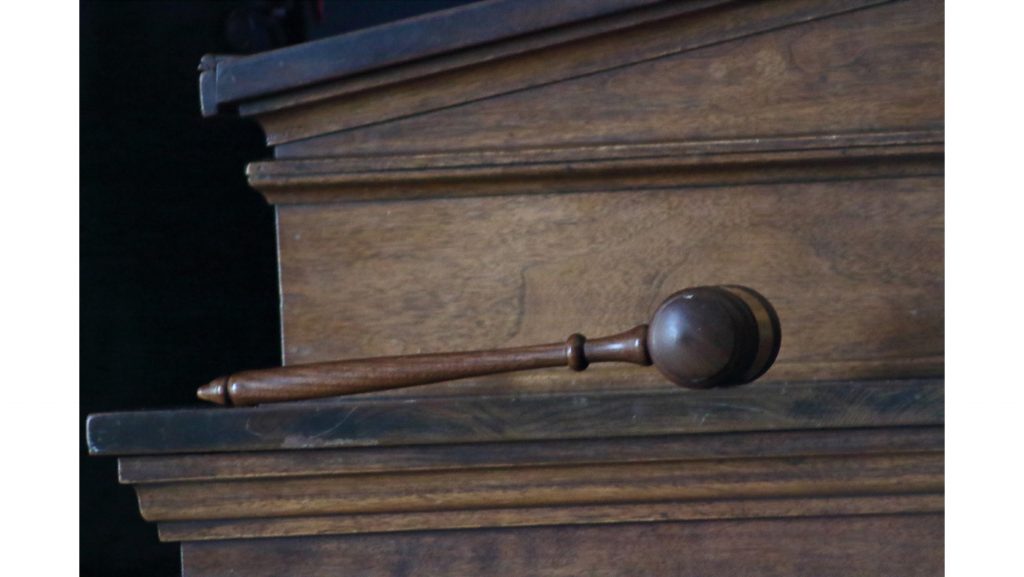The number of judicial applicants in Iowa, such as district court judges, district associates, and supreme court justices, has significantly decreased over the past two decades which experts say is due to nationwide inflation and disproportionate pay increases.
All judges in the state of Iowa are issued a set salary, regardless of their number of years in the position, Iowa Judicial Branch Communications Director Steve Davis said. From 2003-23, there was a 61 percent decrease in applicants, Davis said.
According to the Iowa Legislature, in the state of Iowa, a district court judge is paid $158,056. In Illinois, however, the set judicial salary is $234,380, which is over $76,000 higher.
Judicial salaries for states such as Nebraska, Minnesota, South Dakota, Wisconsin, and Missouri are also higher than in Iowa, with Iowa ranking 41st in the country.
Davis said the Iowa Legislature provides an annual appropriation to the judicial branch that determines their budget.
“Their pay is determined in Iowa Session Law and can only be changed if the legislature explicitly changes the salaries,” Davis said.
Iowa Justice Systems Budget Subcommittee Chair and Rep. Brian Lohse, R-Bondurant, said the state Revenue Estimating Conference estimates the amount of revenue the state expects to take in over the next fiscal year.
The legislature then determines how much of that revenue they will spend, and the revenue is split between the House and Senate and allocated to different budgets, such as the budget for the judicial branch, Lohse said.
Davis said there is a 6.2 percent pay increase that the judicial branch in Iowa is requesting for fiscal 2025, which begins on July 1 and ends on June 30, 2025.
If the Iowa Legislature were to give the 6.2 percent increase, Iowa would continue to remain at the bottom of the pay scale in comparison with other states.
Lohse said it would increase the average pay to $167,500, an increase of roughly $10,000, making up for the lack of pay increase in the previous year.
“This number is still significantly less than our closest neighboring competitor — Missouri — which is set at $170,000,” Lohse said.
Davis said there have only been five increases to judges’ pay in the past 15 years.
“This creates serious problems for retention and recruitment of judges,” Davis said.
All judges that are appointed to the Iowa courts must be attorneys who are allowed to practice law in the state, Davis said.
“Attorneys leaving private practice to become judges understand that public service generally involves a salary cut,” Davis said.
Additionally, Davis said judges face severe pay cuts year after year throughout their careers because their salaries fail to keep up with inflation due to inflation-adjusted income. From 2010-23, the inflation-adjusted income for judges has decreased by 18.1 percent, Davis said.
Lohse also said Iowa judges’ salaries have not kept up with the average rate of inflation, which was 4.1 percent in 2023.
“[Judges] may make more, but the buying power of what they make is less,” Lohse said.
Lohse said by increasing pay to a competitive level and also funding the staff needed to assist judges, more attorneys will be willing to join the judicial system.
RELATED: Iowa House Democrats unveil plan to raise minimum wage by 2026
“The state has to make a clear and decisive decision that if we want the best legal minds and the best legal outcomes for our citizens, we need to be able to attract and retain good lawyers to be judges,” Lohse said.
Davis said there are a number of ways to resolve this issue, including the legislature providing an annual salary for judges, and giving the judicial branch the power to decide the salaries of judges with the budget they are given.
“If the last 20 years of trends are indicative of the future, applicants will continue to decline,” Davis said. “These salaries deter attorneys from applying to become judges.”



